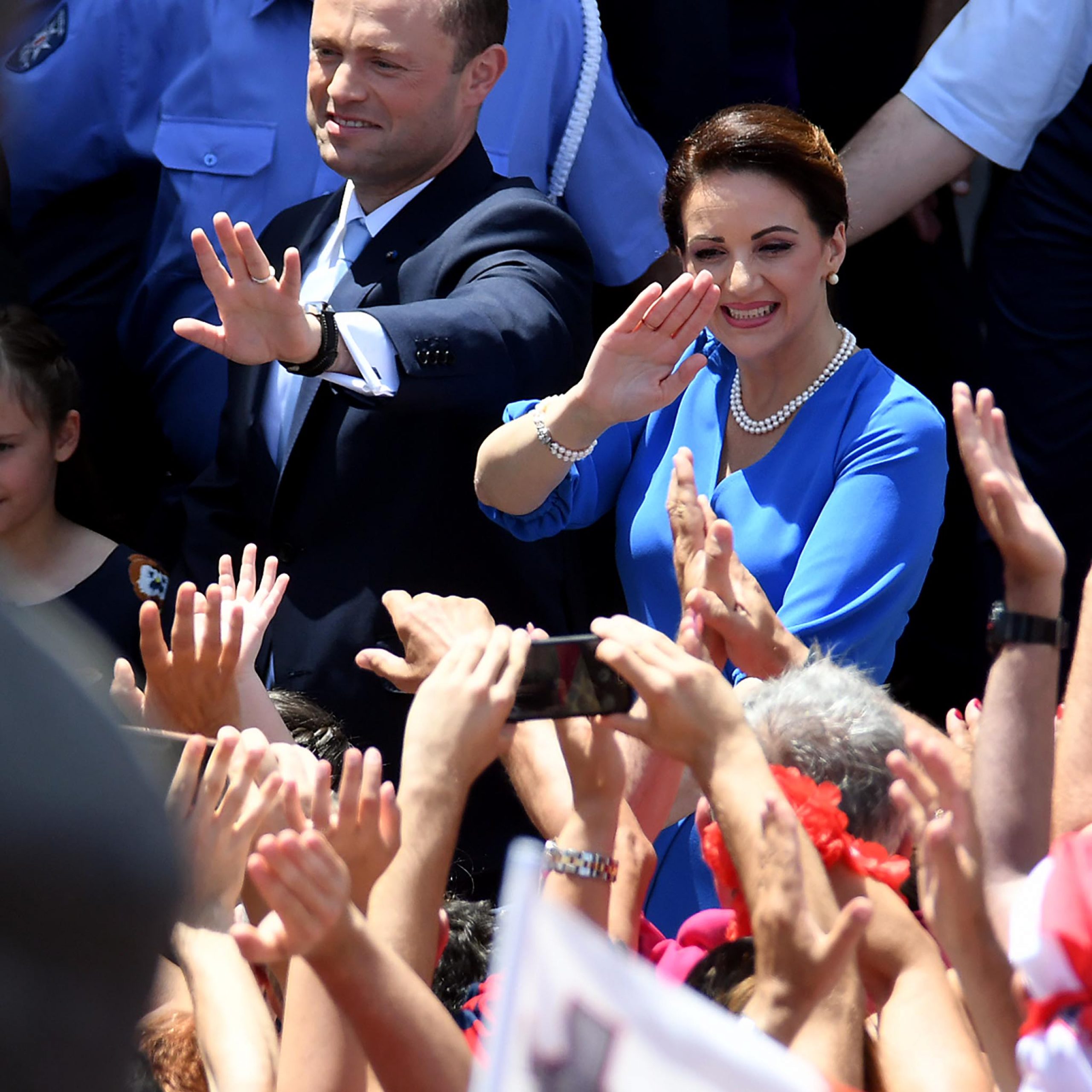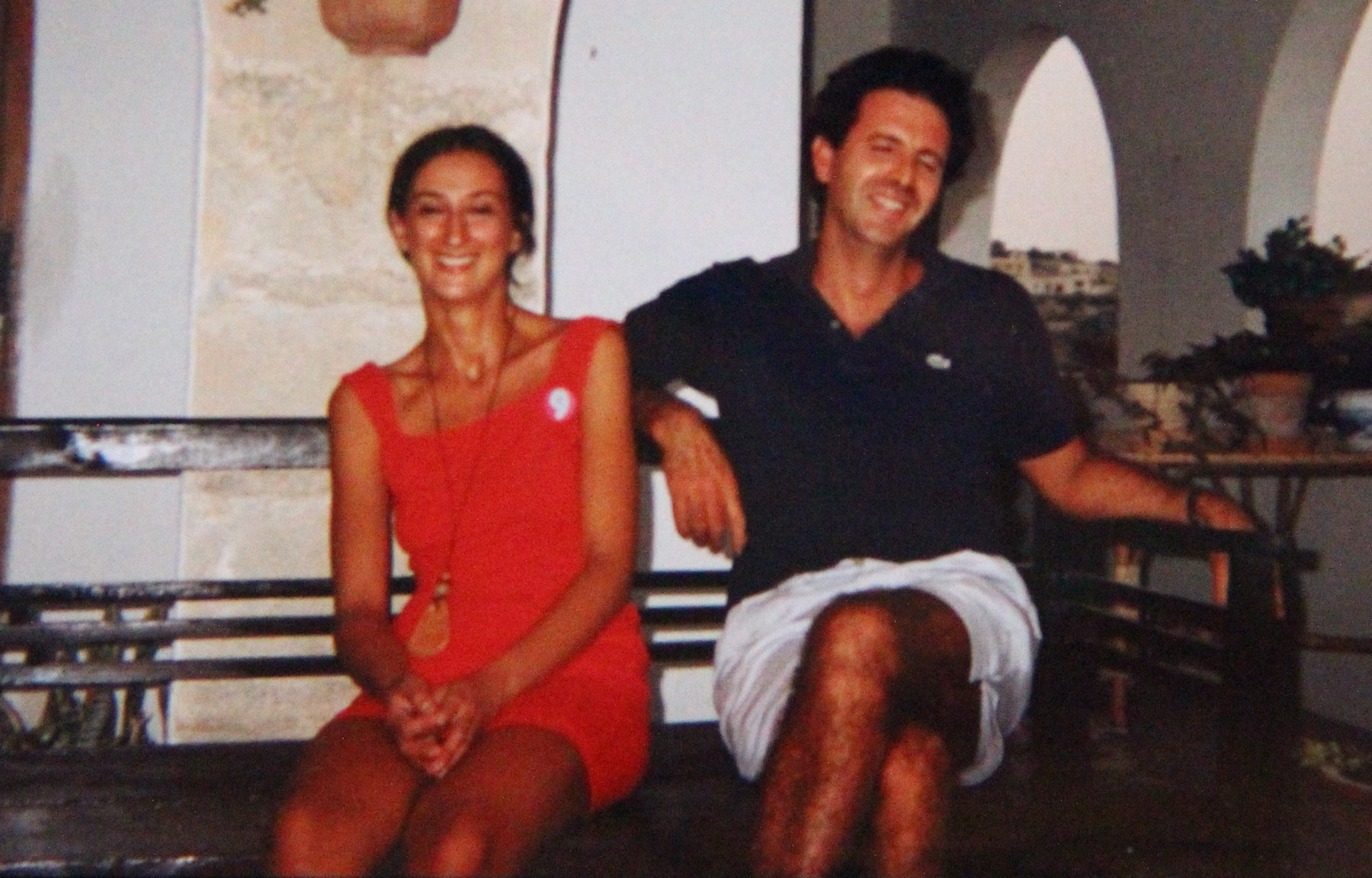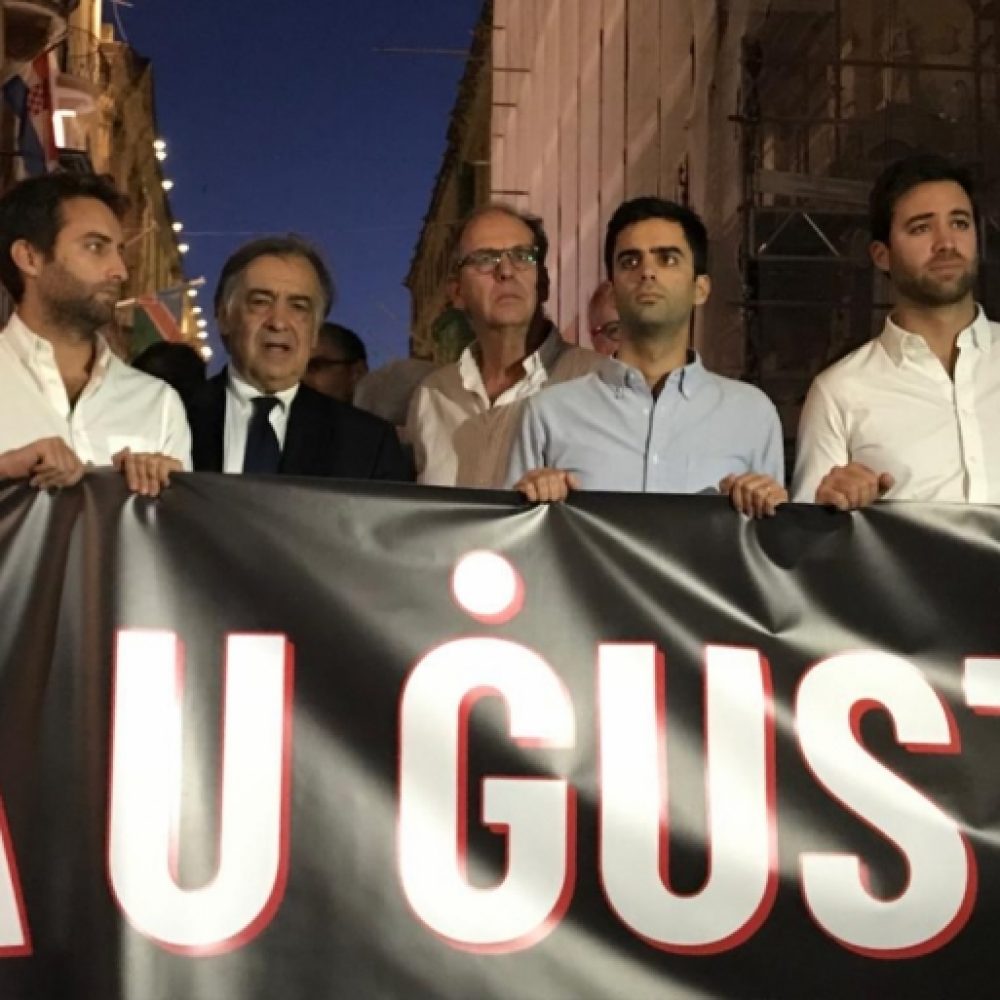Disgraced former prime minister Joseph Muscat turned his guns on the family of assassinated journalist Daphne Caruana Galizia again this week, after her husband, Peter Caruana Galizia, filed an affidavit in court as part of a libel suit by Muscat against the journalist that he continues to pursue more than three years after she was killed on his watch.
On 30 June, Muscat wrote a Facebook post expressing ‘disbelief’ at the text of the affidavit and used it to demand that Caruana Galizia “accept” the findings of a controversial magisterial inquiry, adding that he’d only drop the libel suit if the family did as he asked.
Muscat claims that Caruana Galizia had libelled him and his wife when she wrote in April 2017 about a secret Panama company called Egrant, alleging the company belonged to Muscat’s wife, Michelle. That same year, Muscat instructed then-Magistrate Aaron Bugeja to carry out an investigation into whether there was any evidence that Michelle Muscat was the owner of Egrant.

The inquiry, which has been widely criticised for being neither thorough nor competently executed, was conducted along the extremely narrow confines of the brief set by Muscat himself. Bugeja, since promoted by Muscat to a judgeship, concluded that there was no proof that Michelle Muscat owned Egrant.
It took Bugeja 15 months to complete the enquiry and produce his report, though initially only his 49-page conclusion was made public. It was not until 2019 that the full 1500-page report was finally obtained and published by the opposition Nationalist Party.
Caruana Galizia affidavit recalls Aliyeva connection to Panama Papers companies
Muscat’s latest attack on the Caruana Galizia family focused on her husband Peter Caruana Galizia’s affidavit, which stated that his wife had reported a money transfer between Leyla Aliyeva, the daughter of the president of Azerbaijan, Ilham Aliyev, and three secret offshore companies exposed in the Panama Papers documents: Egrant, Tillgate and Hearnville. The latter two companies belonged to former minister Konrad Mizzi and former chief of staff to Muscat, Keith Schembri.
Schembri is currently on police bail awaiting trial for corruption and money laundering in a separate case linked to his controversial contracts to supply Allied Newspapers, publishers of the Times of Malta, with a new printing press and related services. He was reported to have fallen ill a few months ago and missed several court sittings as a result.
Muscat seized on Caruana Galizia’s affidavit as yet another pretext to attack the grieving family. He cited the affidavit, which reportedly read: “There is no indication or allegation in the article that Joseph Muscat or Michelle Muscat received any money directly or indirectly from a company owned by Leyla Aliyeva”.
The affidavit reported also pointed to a disclaimer published on the Panama Papers revelations, which stated that opening an offshore company is not in itself a crime.
Muscat wrote on Facebook: “Yes, you read correctly. This is something completely new when one considers the lies that were made about us.”
What Daphne Caruana Galizia did report in April 2017 was a transfer of $1million from an account at Pilatus Bank – belonging to Aliyeva’s Dubai company, Al Sahra FZCO – to another bank account in Dubai: Egrant Inc.
She also reported that between January and March 2016, a series of $100,000 transfers each had gone from Al Sahra’s Pilatus Bank account to Egrant. She claimed, based on documents she was shown, that Egrant belonged to Michelle Muscat.
Peter Caruana Galizia said in his affidavit that the Bugeja inquiry failed to establish who owned the secret Dubai company, Egrant, and was therefore inconclusive.

2017 early election prompted by fear of leaked documents
Muscat, on the other hand, claims the inquiry exonerated his wife. He also claims that Caruana Galizia’s allegations caused unrest in the country and therefore forced him to call an early election in 2017.
This narrative is disputed by the family and most government critics, especially as substantial evidence and witness statements in the ongoing trials of several of her accused murderers suggests she was slain specifically to stop her reporting on corruption and wrongdoing related to the construction and operation of a scandal-ridden gas-fired power station, Electrogas.
In the months before her assassination, a whistleblower at Electrogas sent her a cache of some 680,000 files.
Testimony from the murder middleman, Melvin Theuma, granted a pardon to reveal the truth about the conspiracy to kill her claimed that the accused mastermind, Yorgen Fenech, a shareholder of Electrogas, specifically mentioned the need for haste, or she would publish the information.
The Caruana Galizia family has consistently rejected Muscat’s attempts to get them to acknowledge the conclusions of the Bugeja inquiry into Egrant. They insist that the then-magistrate’s failure to establish who actually owns the Dubai company means the entire question remains open.
Regime of secrecy helps seal Malta’s fate
In the meantime, the failure to discover who the ultimate beneficial owner of Egrant and similarly structured secret companies continues to haunt Malta.
The international anti-money laundering watchdog, the Financial Action Task Force, last week put Malta under increased monitoring measures, its so-called ‘grey list,’ specifically citing secrecy around UBOs and lack of enforcement of rules to control financial crime.
The failure of the Maltese government, police and courts to successfully prosecute any of the high profile government members and officials exposed through the Panama Papers, Caruana Galizia’s reporting and the host of further reports, including from the National Audit Office and international media reports, that have come out since the assassination, was also highlighted by the FATF as a reason for their decision.
The message relayed by the FATF’s Marcus Pleyer was direct and specific. The government’s attempt to scrabble belatedly to beef up legislation and come down hard on small operators accused of committing minor infringements was far from satisfactory and nowhere near sufficient to save the Maltese financial services jurisdiction from being sanctioned for its failure to fulfil its international obligations to fight money laundering and financial crime. It seems increasingly clear that Daphne Caruana Galizia was killed because of what she was about to expose, and the Labour government’s survival depended on it.
The following project is weekly Maltese Roundups prepared by The Shift News (Malta) offering the latest news in Daphne Caruana Galizia case.

